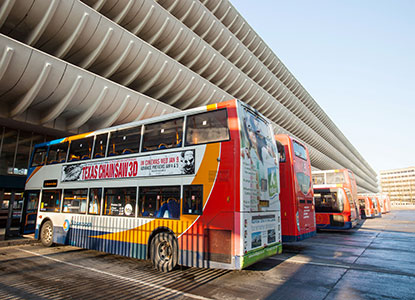By Richard Johnstone | 1 May 2014
The government has been urged to give cities in England five-year capital allocations for transport improvements, similar to the long-term funding deals given to Transport for London.

A report by Centre for Cities published today said TfL’s integrated control of the transport network since 2000 had boosted investment and improved coordination of buses, trains and other modes of transport.
This has increased the ability of people to find work and businesses to reach customers across London, unlocking economic growth and reducing carbon emissions, the Delivering change: making transport work for cities concluded.
Long-term funding deals between government and TfL since its creation – with capital allocations set out at spending reviews in addition to the agency’s borrowing powers – had allowed infrastructure schemes such as Crossrail to be developed.
By contrast the report, undertaken with construction firm Mace, concluded that fragmented provision and short-term transport funding in local government settlements for other cities meant different modes were often poorly connected.
As well as giving all cities five-year minimum funding settlements to allow them to plan capital projects, those city regions that have combined authorities – Manchester, Leeds, Liverpool and Sheffield – should be given similar powers to TfL to integrate services, including through increased regulation.
City regions should be given broader scope to use their existing revenue raising powers – such as parking fees – to improve that local transport services meet local needs.
Publishing the report, Centre for Cities chief executive Alexandra Jones said: ‘Getting to work or school can be a daily slog, especially when the bus, train and road networks are congested or poorly linked together.
‘Cities outside London don’t have enough control over local transport to bring together all the local services, and this affects the economy because of the difficulties it creates in people getting to work or businesses trading.
To help our cities grow, government should give city regions more power to integrate and coordinate buses, trains and traffic, and they should give longer-term funding commitments so city regions can invest and plan for a better transport system – road, rail and buses – over the long term.’





















